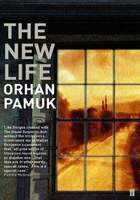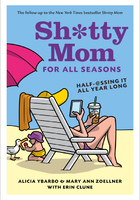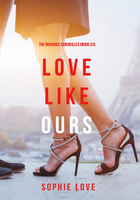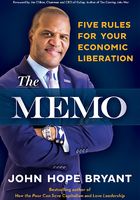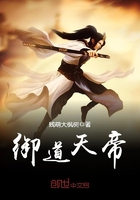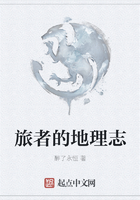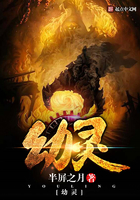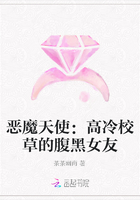"CARS"
The late 1970s were teeming with highly regarded synthesizer acts of which great things were expected. The original, enigmatic incarnation of the Human League had a ton of U.K. music-press credibility and a fan following that included the godfather of new wave himself. "Listening to the Human League is like listening to 1980," Bowie said—in 1979. Meanwhile, Orchestral Manoeuvres in the Dark's debut single on Factory, "Electricity," put them near the top of most major labels' sign-them-now lists, and Ultravox received raves for their album Systems of Romance, which saw the group jettison their glam-punk origins and embrace the Teutonic android within. No one expected anything from Gary Numan. You could read your way through a small forest of British pop papers and magazines and never see his name. You could listen to months of late-night radio shows and never hear one of his songs. But Numan was the first and, albeit briefly, the biggest star produced by Britain's burgeoning electronic music scene. In 1979, less than a year after he made his recording debut, he had two consecutive number-one singles and albums in Britain, and by 1980 "Cars" hit the Top 10 in the United States. He was soon overtaken by the better-known electronic acts he had originally surpassed but, for one shining moment, Numan's out-of-nowhere success was like discovering an alien among us.
JB: In 1972, David Bowie made his debut on Top of the Pops performing "Starman." The next day, legend has it, hardened British soccer thugs were slathering on nail polish and eyeliner. I was too young and clueless to have any lasting memory of that phenomenon. In 1978, Gary Numan, then the 20-year-old leader and focal point of synth act Tubeway Army, appeared on both TOTP and boring elder-sibling The Old Grey Whistle Test in the same week, performing "Are 'Friends' Electric?" While Numan didn't have quite the seismic generational impact that Bowie did, that one-two TV punch sired a vast cult of British Numanoids almost overnight—and that phenomenon, I was absolutely around for. Numan's glowering mass of worshipers, with their black hair, black suits, red ties, and mad, staring eyes, made quite the picture. Their idol may have lacked Bowie's performance skills, fluid sexuality, and unique vision, yet there was something about his chalky pallor, panicked gaze, and strangled yelp of a voice that made him seem like a genuine man who fell to Earth. Even when he tackled subject matter as universal as automobiles, he still seemed like an alien visitor awkwardly attempting to acclimate himself to human transportation. But whether you were entranced by his otherworldliness or felt outrage at his wholesale pilfering of leftover bits of Bowie, "Cars" is a compelling testimony to Numan's ability to pen a hook sturdy enough to last a lifetime.
LM: In 1980 I was nine years old, and my favorite group was Air Supply. My favorite album was the Grease soundtrack. My father had Warren Zevon's Excitable Boy on repeat. I knew nothing of Ziggy Stardust, so when "Cars" came out, I thought Gary Numan was the most original thing ever. He was like a space vampire. "Cars" was my introduction to new wave, and that momentous event occurred while I was simultaneously laying eyes on that space vampire! For me, that was the moment when video plunged a stake through the heart of the radio star. Although I didn't yet know what new wave was, I recognized this Gary Numan guy hailed the arrival of a new sound—music that was dance-y like disco, exciting, and futuristic. Later I found out that everything I thought was new and exciting about him had been ripped off from David Bowie. But I didn't care and still don't.
GARY NUMAN: My introduction to electronic music was by accident. I got signed up by the Beggars Banquet label with my punk band, Tubeway Army, at the end of '78, pretty much as the punk thing had peaked and was on its way out. They sent me to record what had been my live set up to that point, 40 minutes of punk songs. When I got to the studio, there was a Minimoog synthesizer in the corner of the control room waiting to be collected by a hire company, which, luckily for me, never turned up, and I was able to use it for two or three days. I'd never seen one before, and I loved it. It had been left on a setting that sounded amazing, this huge bottom-end, roaring, rumbling sound. I wouldn't have known how to get that sound; I didn't know anything about synthesizers. They were just a bunch of dials to me.
Over the next day or two, I was able to experiment. I developed a massive passion for electronic music practically overnight. I very hastily converted my pure punk songs into electronic songs, and I went back to the record company with a pseudo-electronic punk album. It wasn't what they wanted, it wasn't what they signed me for, and, understandably, they were quite unhappy with it. When we presented the album, it got really silly. One of the directors stood up to fight me—it got that childish. The thing that saved me was the record company had no money whatsoever. Whatever tiny budget they had to put me in the studio, they'd blown it all. They couldn't afford to put me back in to give them the album they really wanted. It was one of the rare occasions that being on a label with no money was actually a good thing.
The album, Tubeway Army, went out in 1978, and it didn't set the world on fire, but it didn't go down badly the way they thought it would. So they put me back in the studio to do another one just a few months later, and that one, Replicas, went to number one. I had a number-one single ["Are 'Friends' Electric?"] and a number-one album at the same time, so I was vindicated.
Within a few months of "Are 'Friends' Electric?" going to number one in the U.K., "Cars" came out and went to number one. I went from never having seen a synthesizer to having two number-one singles and a number-one album in 12 months. It was pretty meteoric. I was doing interviews with technology magazines about programming synthesizers and didn't have a clue what they were talking about. They were asking me about envelopes and fills and boffin shit. I just blagged and bullshitted my way through it. I pretended I knew what they were talking about, then I'd go home and try to figure it out. It was a really exciting time, but I was hopelessly out of my depth.
I went from being absolutely unknown—I think I'd done one tiny interview with a little local punk fanzine—and then I was number one. There was nothing in between. It was like living in a bipolar world where people you've never met love you all of a sudden, then you walk around a corner and somebody hates the air that you breathe even though you've never met them. And you're suddenly doing TV shows with people you've loved and admired for years, and now you're one of them, but you don't feel like you're one of them—you feel like an intruder that snuck in the back door. I thought that I'd been very lucky to get where I was and that my songwriting needed to be much, much better to justify the amount of success I had. So I actually felt slightly embarrassed and guilty at times about finding myself in the position I was in.
I'm glad it happened, nonetheless. I look back on it now and think I probably could have enjoyed it so much more if I had just been a bit calmer and more worldly and definitely if it had happened a little more slowly. I'd made it on my second album, and I'd made it massive. At one point, in the U.K. alone, I was selling 45,000 singles a day. It was all down to Top of the Pops. You got on that program and you pretty much made it overnight. It was very difficult to get on; you had to have at least a small amount of success. Again, with me, I was very lucky.
"Was 'Cars' easy to write? Piece of piss, innit? I'd wanted to learn bass guitar better….The first four notes I played on that guitar, and I thought, That's all right."
For a month or two, Top of the Pops did a thing they called "Bubbling Under," where they would take a song that wasn't on the chart but showed some sort of movement. It was between me and Simple Minds—we both had songs out that got to number 80 or something like that. And they picked me because my band was called Tubeway Army. They thought that was a slightly more interesting name than Simple Minds. Just luck. Suddenly, I was seen by 12 million people, and "Are 'Friends' Electric?" was number one.
After that, as far as I was concerned, Tubeway Army was finished. Tubeway Army was a punk band; this was a completely new thing. I wanted to be on my own. I wanted to be Gary Numan now. If I'd had my way, it would have been Gary Numan from the beginning, but Beggars Banquet said they'd invested money in the Tubeway Army name, and they didn't want to drop it. They made me stick with it through the first two albums. It wasn't until "Are 'Friends' Electric?" and Replicas went to number one that I had enough clout to get what I wanted. I was eventually able to become Gary Numan when "Cars" came out.
Was "Cars" easy to write? Piece of piss, innit? I'd wanted to learn bass guitar better; I'd never written a song on the bass. So I went to Shaftesbury Avenue in London and bought myself a cheap bass called a Shergold Modulator. I've still got it—it hangs on a wall in my studio. I took it home, got it out of its case, and the very first thing I played was [sings the first four notes of "Cars"]. That was it. The first four notes I played on that guitar, and I thought, That's all right.
Honest to God, "Cars" took me 10 minutes—all the parts, all the arrangements. Another 20, and the lyrics were done. The whole thing took about half an hour, from opening the case to having the finished bass line, arrangement, lyric, and vocal line sorted out. The keyboard line came a bit later when I got to the studio, because I didn't have a synth; I had to rent one. It was the most productive 30 minutes of my life.
Out of all the songs I've written, "Cars" was by far the quickest. I've written 300 or 400 songs—that are available on CD; I've written a lot more than that—and only two on bass, one being "Cars," the other completely forgettable. It's become this electronic anthem, one of the most well-known electronic songs ever, but it was written on a bass.
One of the other things that's weird about it is it's almost an instrumental. It doesn't have a vocal chorus. All the singing happens in the first 60 seconds, then there's another three minutes of instrumental. I had a similar issue with "Are 'Friends' Electric?," but that was the opposite: That was five and a quarter minutes long, you couldn't dance to it, and it had a spoken-word chorus not a sing-along chorus. If you think of all the boxes you're supposed to tick to have a radio-friendly song, "Are 'Friends' Electric?" didn't tick any of them, and "Cars" didn't do that much better.
MIXTAPE: 5 More Synthetic Songs Filled with Paranoia and Alienation 1. "Airwaves," Thomas Dolby 2. "Ghosts," Japan 3. "Suburbia," Pet Shop Boys 4. "Underpass," John Foxx 5. "Private Plane," Thomas Leer
"I used to think that the car was a tank for the civilian. You could sit inside your car, lock your doors, and it would keep you safe."
The problem I've always had with "Cars" is when I play it live, and especially when I do it on TV, I just stand on the stage, and my bit is over pretty quickly, and then I've got to stand there and try to look interested. I used to think, What the fuck am I going to do? I can't dance—I dance like an idiot. When I play it live, even now, I'll often put another keyboard on stage just to give me something to do with my hands. For a few years I stood on the side and had a drink, or I'd go and sit down. I've always had an uncomfortable relationship with the last two or three minutes of the song.
Lyrically, "Cars" came from an incident that happened to me in London. I was in my car and in a bit of traffic, and there were a couple of men in front of me in a white van, and they got out. I'd obviously done some-thing—I must have cut them off a while back. I don't remember. But they were fucking furious, these blokes. They came back at me, shouting. I locked all my doors—I didn't want any trouble. They were kicking my car, banging on the handles, and swearing at me, for fuck's sake! I don't know what I did, but it must have been pretty bad. Eventually, I thought, I'm gonna have to get away from this. There was enough room for me to get up on the pavement, so I drove up and I went along, with these people chasing me, scattering pedestrians in my wake, shitting my pants. I was really scared. I managed to get away up the high street. It was quite a shocking experience, and that's where the idea for "Cars" came from. In modern society, I used to think that the car was a tank for the civilian. You could sit inside your car, lock your doors, and it would keep you safe. It puts you in a little protective bubble. You can maneuver through the world, but you don't really have to engage. That's how it felt to me, and that's what the song's about.
THAT WAS THEN
BUT THIS IS NOW
Gary Numan continues to tour and record and has released 15 albums since 1980's Telekon. His influence has been hailed by musicians like Damon Albarn and the Sugababes and comedians like Noel Fielding. His 1980 Top 10 chart showing with "Cars" marks the beginning and end of his American success, but if fate deigns to allow you only a solitary hit, "Cars" isn't a bad one to have. It single-handedly prepared the United States for the British-led electronic onslaught that was lurking just around the corner. In the ensuing decades, it has been sampled, covered, remixed, and reissued countless times. Long after there are cars, there will be "Cars."
NUMAN: I've got a huge amount of credibility now, strangely enough. I never had it when I was selling number-one albums. It's been a slowly building thing for me. Marilyn Manson did one of my songs. I started to hear interviews with people like Trent Reznor talking about me being an influence on them—people I admired and had no idea they even knew who I was. It's given me a huge boost of confidence, and it's helped a lot of people to reevaluate me, the music press in particular. When my Pleasure Principle album came out in '79, it got fucking crucified. It got pretty much slammed into the ground by everyone who reviewed it. Yet, a little while ago, the NME—who've been unbelievably hostile toward me over the years—called it one of the groundbreaking electronic records of the last few decades.
There's been a fundamental shift in the way people see me and think of me, but the undeniable fact in the middle of all this is that I only ever had one single that was successful in America. Just the one. Better than none. But I never did better in America when I had that initial opportunity, and I live on in the vague thread of a hope that I might have something there again in the future.

